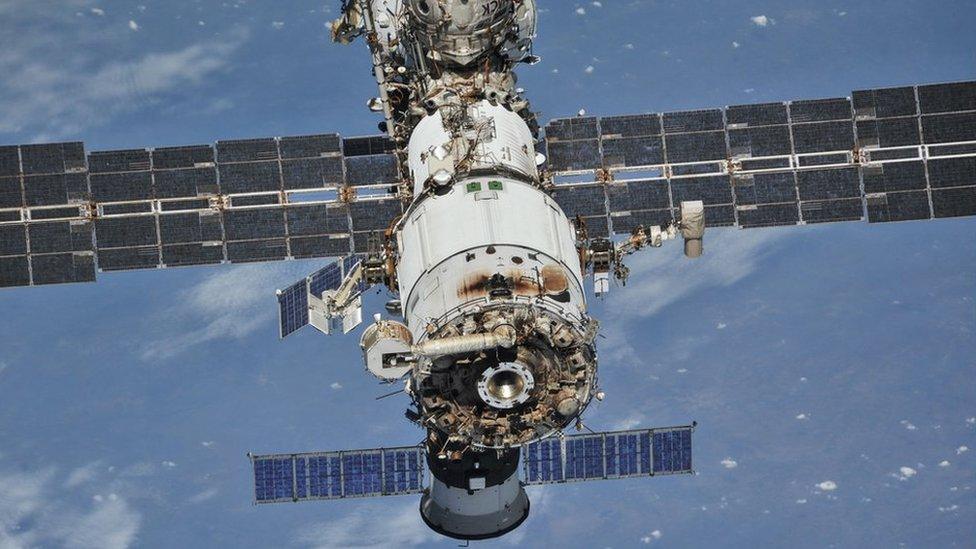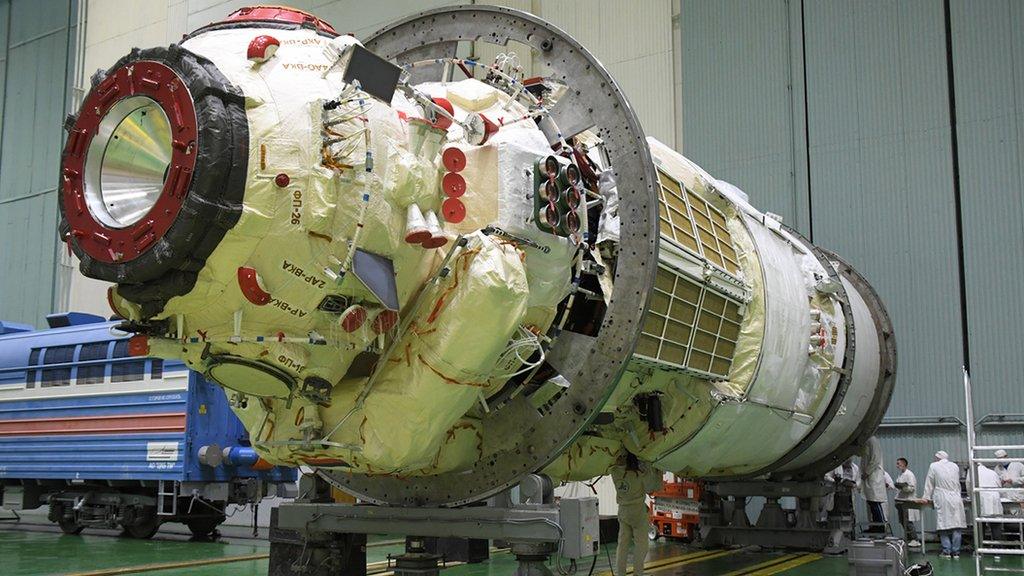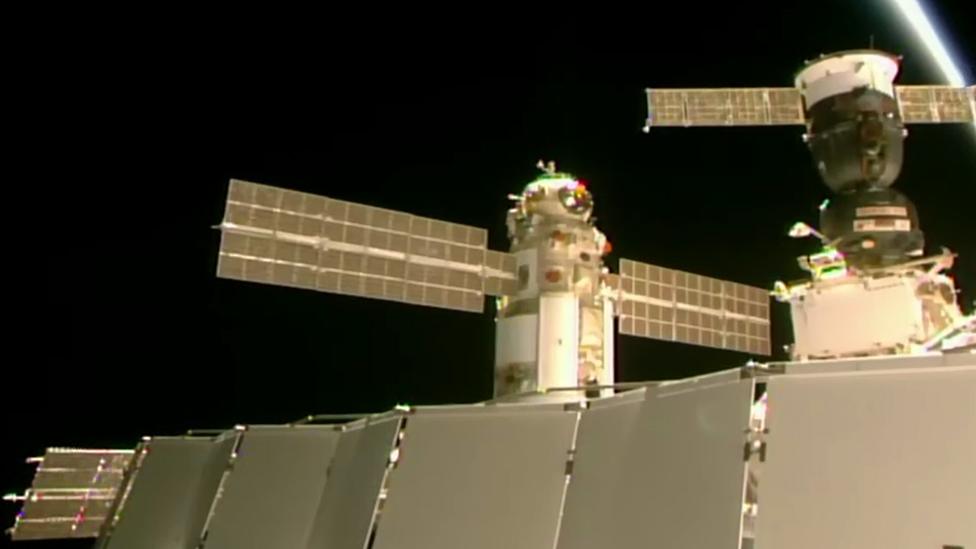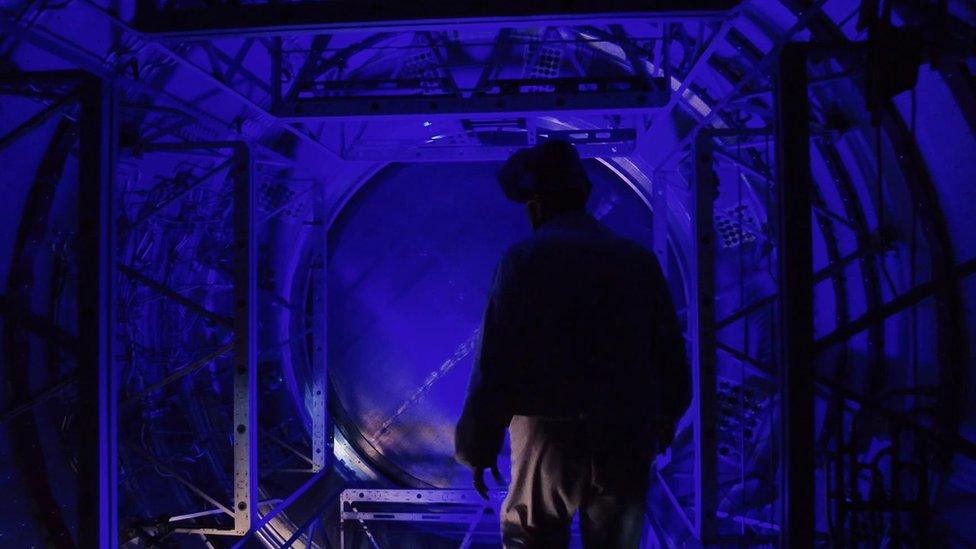International Space Station: Smoke triggers alert on board
- Published

The ISS pictured from a Soyuz spacecraft last year
Alarms were triggered on board the International Space Station after the crew reported smoke and the smell of burning plastic.
The incident centred on the Russian-built Zvezda module which provides living quarters, Russian media report.
The ageing space station has suffered a number of failures over the years and a Russian official recently warned of outdated hardware and failing systems.
These include air leaks, misfiring engines and cracks.
Russia's space agency, Roscosmos, said later that all systems were back to normal.
The smoke was detected during recharging of the station's batteries, the agency said, and the crew had now returned to "regular training".
The burning plastic smell was reported to have spread from the Russian section to the US segment.
The US space agency, Nasa, said a spacewalk planned for later on Thursday would still go ahead, according to Russia's Ria Novosti news outlet.
Two Russian cosmonauts are set to carry out work on the recently delivered Nauka science module.
Allow X content?
This article contains content provided by X. We ask for your permission before anything is loaded, as they may be using cookies and other technologies. You may want to read X’s cookie policy, external and privacy policy, external before accepting. To view this content choose ‘accept and continue’.

Russian official Vladimir Solovyov told state media on 1 September that the ISS could suffer irreparable failures due to outdated equipment and hardware.
At least 80 percent of in-flight systems on the Russian segment had passed their expiry date, Mr Solovyov, chief engineer at space company Energia, told state media. Energia is the lead developer of Russia's ISS modules.
He also said small cracks had been discovered on Russia's Zarya cargo section and they could worsen over time.
The ISS was built in 1998 as part of a joint project between Russia, the US, Canada, Japan and several European countries and was originally designed for a 15-year lifespan.
In April, Russia's Deputy Prime Minister Yuri Borisov told state TV that aging metal on the station could "lead to irreversible consequences - to catastrophe. We mustn't let that happen".
Roscosmos said last year that structural fatigue meant the ISS would not be capable of operating beyond 2030.
In July, a malfunction caused the jet thrusters on the Nauka module to fire without warning, destabilising the ISS.
Russia said in April that it could leave the ISS and build its own space station by 2030, though nothing has been finalised.
There are currently seven astronauts on board the ISS: two from Russia, three from the US, one from France and one from Japan.
You might also be interested in:
What is SpaceX and why are they working with Nasa?
Related topics
- Published21 July 2021

- Published30 July 2021

- Published20 April 2021
